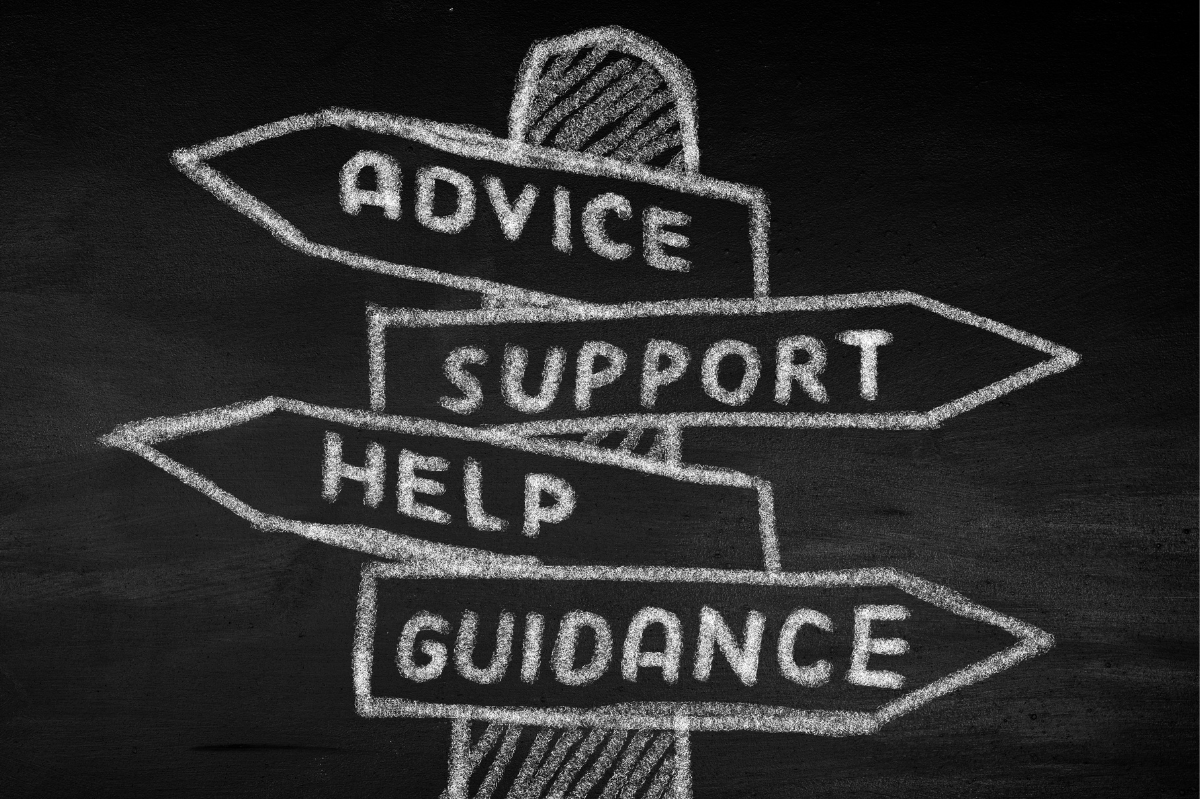Post Disclaimer: This blog reflects the author's personal experience with end-of-life matters and is provided in good faith for informational purposes only. While we aim to provide clear guidance on hard-to-find topics, this content is not legal advice and your use is at your own risk. Estate planning and end-of-life laws vary by location, so please consult your state's laws and seek guidance from a licensed attorney for your specific situation. We make no warranty about the accuracy or completeness of this information, which does not replace professional legal counsel. For more information, please see our full disclaimer.
Losing a loved one is devastating, and it's often in those first difficult days that a strong grief support network becomes indispensable.
Having people around who understand your pain and offer comfort can be a lifeline.
But where to begin in creating this network?
It's key to reach out to family, trusted friends, and professionals who can provide both emotional and practical support.
Doing so not only eases immediate burdens but also lays the groundwork for healing.
For those navigating these first challenging moments, consider consulting guides like the Death of a Family Member Checklist: First 24 Hours Guide to manage immediate tasks during this fragile time.

Understanding the Importance of a Grief Support Network
In the aftermath of losing a loved one, establishing a grief support network is not just beneficial; it can be life changing.
A network of compassionate individuals offers more than just a shoulder to cry on—they provide essential emotional, practical, and psychological support.
This foundation helps you navigate the turbulent waters of grief, ensuring you do not have to face it alone.
Immediate Support in the First Days of Grief
When grief is fresh, immediate support is crucial. Those first days can be overwhelming as you grapple with your emotions while managing logistical tasks.
Here's how you can ensure you have the right people around you:
- Reach Out: Contact family members and close friends immediately. Not everyone might know what to say, but their presence is often enough.
- Delegate Tasks: Ask someone you trust to handle immediate responsibilities, such as notifying others or organizing the funeral arrangements. This can take a significant burden off your shoulders.
- Professional Help: Consider involving a grief counselor early on, especially if you're struggling to process your emotions or make sense of your new reality.
Additionally, following structured advice, like the Death of a Family Member Checklist: First 24 Hours Guide, can help manage these overwhelming tasks efficiently.
Benefits of Emotional and Psychological Support
Engaging with a grief support network provides far-reaching emotional and psychological benefits.
Emotional support can act as a balm, easing the raw edges of sorrow and providing a perspective that might otherwise be difficult to achieve alone.
- Safe Space for Grieving: A supportive group offers a safe environment where you can express your feelings without judgment. This is essential for emotional healing.
- Shared Experiences: Sharing your experiences with others who have also faced loss can be incredibly validating. As highlighted in 7 Benefits of Joining a Grief Support Group, these groups can significantly boost your ability to cope with grief.
- Professional Guidance: Professional counselors or support groups provide structured ways to process grief, helping you move through the stages of mourning with guidance and care.
Through shared empathy and understanding, a grief support network acts as a safety net during one of life's most difficult times.
Engaging actively with your support network not only aids personal healing but also strengthens the connections with those around you, forming a robust foundation for recovery.

Key Contacts for Building Your Grief Support Network
Establishing a robust grief support network is crucial, especially in the initial days after losing a loved one.
This network of individuals not only provides comfort but also helps in managing the overwhelming emotions that accompany loss.
It's about surrounding yourself with people who understand, so you're not alone in this journey.
Family and Close Friends
Family and close friends are often the first people we turn to in times of distress.
They know you best and can offer personalized support. These individuals provide a safe environment where you can express emotions freely and receive empathy and understanding.
While they might not have all the answers, their presence can be a significant source of comfort.
After all, who better to lean on than those who love you unconditionally?
- Emotional Anchor: Family and friends can be your emotional rock, helping to stabilize you during turbulent times.
- Shared Memories: Reminiscing about the good times shared with the one who has passed can be healing.
- Practical Help: They can assist with daily tasks and arrangements, easing some of the immediate burdens faced.
Professional Grief Counselors and Therapists
Grief counselors and therapists are trained to help individuals navigate the complexities of loss.
They offer guidance and coping strategies that can be pivotal in managing grief.
Professionals provide structured support and can make the grieving process more bearable.
They help you transition through different stages of grief, ensuring you're not stuck in any one phase.
- Guidance and Coping Strategies: Therapists can equip you with tools to handle emotional turmoil effectively.
- Safe Space for Expression: They provide a non-judgmental space to explore and articulate your feelings.
Seeking professional help isn't a sign of weakness; it's a step towards healing.
Acknowledging the need for expert advice can significantly lessen the burden of grief.
Support Groups and Community Resources
Joining a support group or tapping into community resources can offer additional layers of support.
Being surrounded by others who have experienced similar losses provides a unique form of comfort and empathy that is incomparable.
Shared experiences foster mutual understanding, which can be profoundly healing.
- Shared Empathy: Engaging with others who understand your pain can validate your feelings.
- Broader Support Network: Community resources can connect you with helpful organizations and events.
- Expert Facilitation: Many support groups are led by professionals who guide discussions and provide coping techniques.
For more insights on the benefits of joining a grief support group, you can explore further at Funeral Basics.
Creating a grief support network involves reaching out, whether it's turning to familiar faces or seeking help from those with shared experiences.
It's about finding the right balance and support system tailored to help you navigate through grief.

How to Effectively Utilize Your Support Network
In the throes of grief, a well-rounded support network plays a crucial role in your journey towards healing.
This network consists of individuals and resources that provide emotional and practical aid, particularly important in the initial days following a loved one's passing.
Effectively leveraging your support system means communicating your needs clearly and setting boundaries that protect your emotional well-being.
Communicating Your Needs
Expressing your needs to your support network is paramount. It's easy to assume that others will instinctively know what you need, but this is often not the case.
Articulating your feelings and expectations clearly invites people into your world, allowing them to offer the appropriate support.
- Be Honest: Share your feelings openly. Whether it’s anger, sadness, or confusion, letting others know what you’re going through can foster understanding and empathy.
- Be Specific: Instead of vague requests for help, try giving specific instructions. For instance, "Can you check in with me daily?" or "Could you help with meal prep this week?" are clear asks that guide your supporters.
- Listen to Yourself: Pay attention to your emotions and comfort levels. Your needs may evolve over time, so be open to adjusting how you communicate them.
Understanding how to communicate effectively can transform your grief support network into a lifeline.
For more detailed insights, resources like SAMHSA's guidance can be invaluable.
Setting Boundaries and Finding Balance
While leaning on others is beneficial, it's crucial to strike a balance and set clear personal boundaries.
Knowing your limits helps maintain your mental and emotional health, preventing burnout and resentment.
- Know Your Limits: Recognize when interactions become overwhelming. It's okay to step back and take time for yourself.
- Establish Clear Boundaries: Let your network know what you're comfortable with. This might include limits on topics of conversation or how often you're open to visitors.
- Balance Support with Solitude: While it’s important to lean on others, remember that solitude can also be healing. Give yourself permission to retreat and reflect as needed.
By setting boundaries, you ensure your support network helps rather than hinders your healing process.
Learn more about balancing support and self-care from articles like How To Support Someone Through Grief.
These steps provide a pathway to making the most out of your support network during such a challenging time.
Each has a vital role to play in navigating your emotional journey, helping you preserve your strength even as you process your loss.

Long-term Support and Healing
Navigating grief is a journey that continues long after the initial support from your network of family and friends.
It is essential to ensure that this support remains consistent, as it plays an integral role in long-term healing and personal growth after a loss.
Establishing and maintaining meaningful connections with people who provide emotional, psychological, and practical support can be a vital tool in this prolonged process.
Continuing to Foster Relationships
It's crucial to continue nurturing relationships with those who have been supportive during your early days of grief.
These individuals can provide a sense of stability and understanding as time progresses and your grief evolves.
- Scheduled Check-ins: Regularly scheduled phone calls or coffee dates can help maintain these relationships, offering an opportunity for ongoing support and friendship.
- Open Communication: Keep the lines of communication open. Sharing your thoughts and feelings is a powerful way to process emotions and foster deep connections.
- Shared Activities: Engage in activities you used to enjoy together, which can bring comfort and a sense of normalcy. This also allows for new memories to be created even amidst grieving.
These sustained efforts strengthen relationships, providing a continual source of comfort and support that goes beyond initial condolences.
For more on the importance of communication in grief, consider exploring resources like Coping With Grief and Loss.
The Role of Memorials and Remembrance
Memorials and remembrance activities can be powerful tools in maintaining long-term connections with loved ones who have passed.
These activities allow for the ongoing celebration of life and provide comfort through shared memories and traditions.
- Annual Remembrance Events: Whether it's a family gathering on the anniversary of their passing, or a community event celebrating their life, these rituals can offer a collective space for grieving and healing.
- Personal Tributes: Planting a tree, dedicating a bench, or creating a scrapbook serve as tangible ways to honor their memory and provide solace.
- Memorial Services: Regular services can reinforce connections with other grieving individuals, creating a supportive community that understands your loss.
Participating in these activities can help transform the pain of loss into a cherished memory, fostering healing through shared remembrance.
Learn more about how memorials aid in grief from Grief, Bereavement and Healing.
Maintaining a grief support network that includes ongoing personal relationships and meaningful memorial activities can significantly contribute to long-term healing.
It's about turning the sorrow into a celebration of life—embracing support and remembrance as cornerstones on the path to healing.

Resources for Grief Support
Experiencing the loss of a loved one leaves a profound void, and the journey through grief can feel isolating.
Establishing a grief support network is essential, particularly in the initial days after such a loss.
Surrounding yourself with understanding and supportive individuals can ease the immense emotional burden.
Fortunately, there are numerous resources available to help guide you through grief.
Community and Online Resources
Engaging with community and online resources can provide much-needed support and understanding.
These platforms offer accessible ways to connect with others who are processing similar experiences.
- Local Support Groups: Many communities offer in-person grief support groups where you can meet with others experiencing similar losses. This direct human connection is invaluable.
- Online Communities: The internet hosts numerous support forums and groups where people share experiences and advice. Websites like Grief & Loss Resources offer comprehensive information on available support systems.
- Substance Abuse and Mental Health Services Administration (SAMHSA): SAMHSA provides extensive mental health resources, ensuring you find relevant support tailored to your needs.
These communities can greatly enhance your support network by providing shared empathy and understanding.
Professional Organizations and Helplines
Professional organizations and helplines offer immediate access to counselors and trained professionals who can help guide you through the grieving process.
- Helplines: Having someone available to talk to during moments of intense grief can be a safety net. Lines like the Disaster Distress Helpline offer immediate emotional support.
- Counseling Services: Consider reaching out to professional services found through directories on websites like Grief Resources and Support. They provide a safe space to express your feelings and learn coping strategies.
These services provide a cornerstone for your support network, making mental health care accessible and effective.
Educational Material and Books
Books and educational materials can serve as quiet companions on your journey through grief.
They offer insights and perspectives that might resonate deeply, providing comfort and guidance.
- Self-Help Books: Several authors have penned thoughtful works on navigating grief. These books often blend personal stories with psychological insights.
- Educational Resources: Websites dedicated to mental health and loss frequently publish articles and guides that help demystify the grieving process. For example, LifeShare's Grief Support Resources provide a variety of aids tailored to different needs.
By incorporating these resources into your grief support network, you create an informed roadmap to navigate your emotions effectively.
Building a grief support network through these varied resources allows for personalized support tailored to your unique circumstances.
It’s about finding the right tools and individuals to accompany you on your path towards healing.

Wrap-up: Building a Grief Support Network
The path through grief is undeniably challenging, but establishing a grief support network can make a significant difference.
This network becomes paramount, especially in the early days following the loss of a loved one.
It acts as a lifeline, providing essential emotional and practical support when you need it most.
Engaging with family, friends, and professionals enriches your support system and aids your healing journey.
By taking proactive steps to connect with others who understand your experience, you ensure you're not facing grief alone.
Start small by reaching out to those around you and exploring available resources, whether community groups or professional counselors.
Remember, establishing a support network is not just beneficial—it's crucial.
It forms the foundation for healing and helps transform the weight of grief into a journey towards recovery.
Reach out, connect, and begin to build your supportive circle today.
Check out the Up & Doing glossary page for an alphabetical listing of key terms related to estate administration, funeral planning, and other end-of-life topics.




